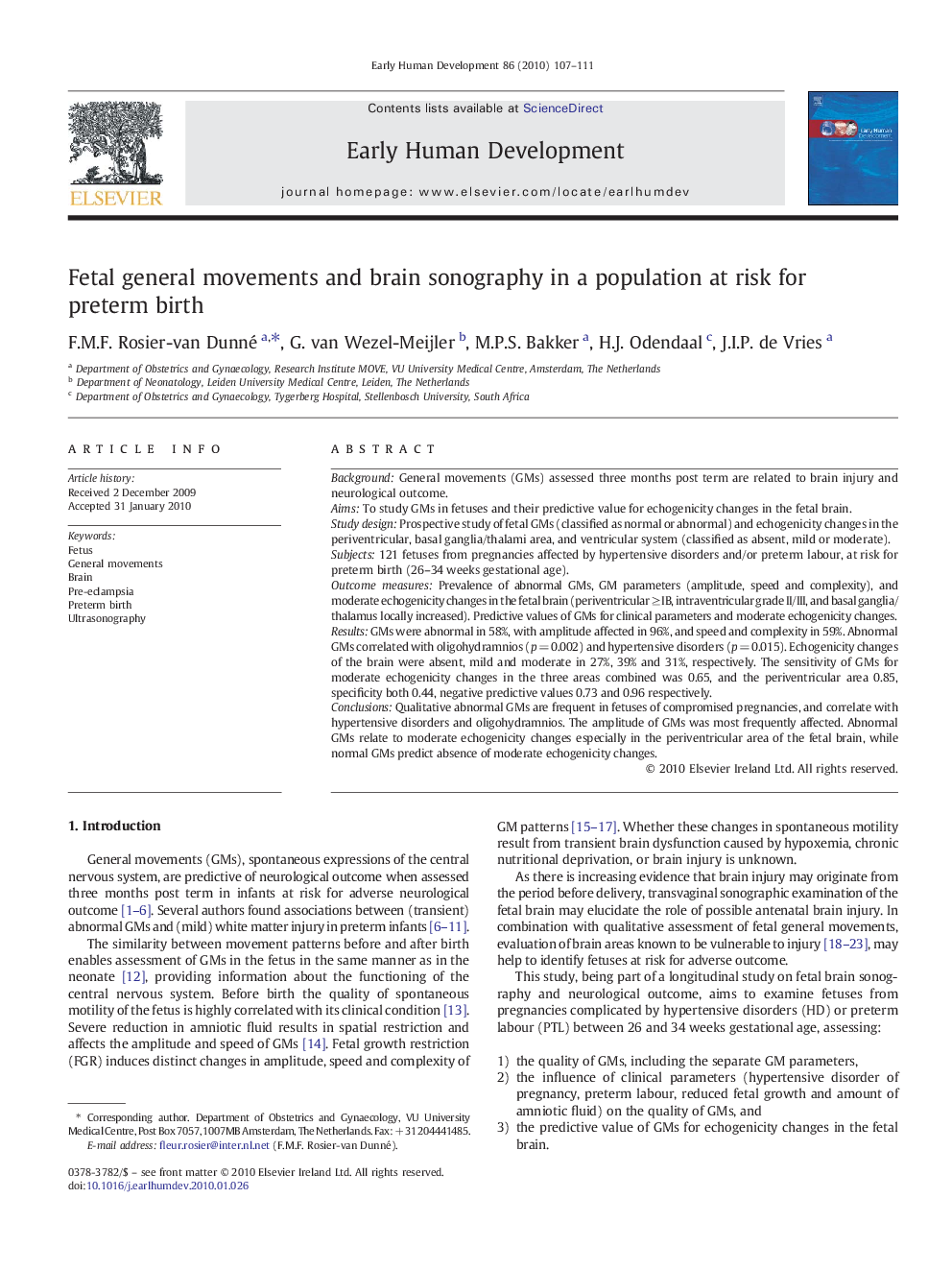| Article ID | Journal | Published Year | Pages | File Type |
|---|---|---|---|---|
| 3917697 | Early Human Development | 2010 | 5 Pages |
BackgroundGeneral movements (GMs) assessed three months post term are related to brain injury and neurological outcome.AimsTo study GMs in fetuses and their predictive value for echogenicity changes in the fetal brain.Study designProspective study of fetal GMs (classified as normal or abnormal) and echogenicity changes in the periventricular, basal ganglia/thalami area, and ventricular system (classified as absent, mild or moderate).Subjects121 fetuses from pregnancies affected by hypertensive disorders and/or preterm labour, at risk for preterm birth (26–34 weeks gestational age).Outcome measuresPrevalence of abnormal GMs, GM parameters (amplitude, speed and complexity), and moderate echogenicity changes in the fetal brain (periventricular ≥ IB, intraventricular grade II/III, and basal ganglia/thalamus locally increased). Predictive values of GMs for clinical parameters and moderate echogenicity changes.ResultsGMs were abnormal in 58%, with amplitude affected in 96%, and speed and complexity in 59%. Abnormal GMs correlated with oligohydramnios (p = 0.002) and hypertensive disorders (p = 0.015). Echogenicity changes of the brain were absent, mild and moderate in 27%, 39% and 31%, respectively. The sensitivity of GMs for moderate echogenicity changes in the three areas combined was 0.65, and the periventricular area 0.85, specificity both 0.44, negative predictive values 0.73 and 0.96 respectively.ConclusionsQualitative abnormal GMs are frequent in fetuses of compromised pregnancies, and correlate with hypertensive disorders and oligohydramnios. The amplitude of GMs was most frequently affected. Abnormal GMs relate to moderate echogenicity changes especially in the periventricular area of the fetal brain, while normal GMs predict absence of moderate echogenicity changes.
